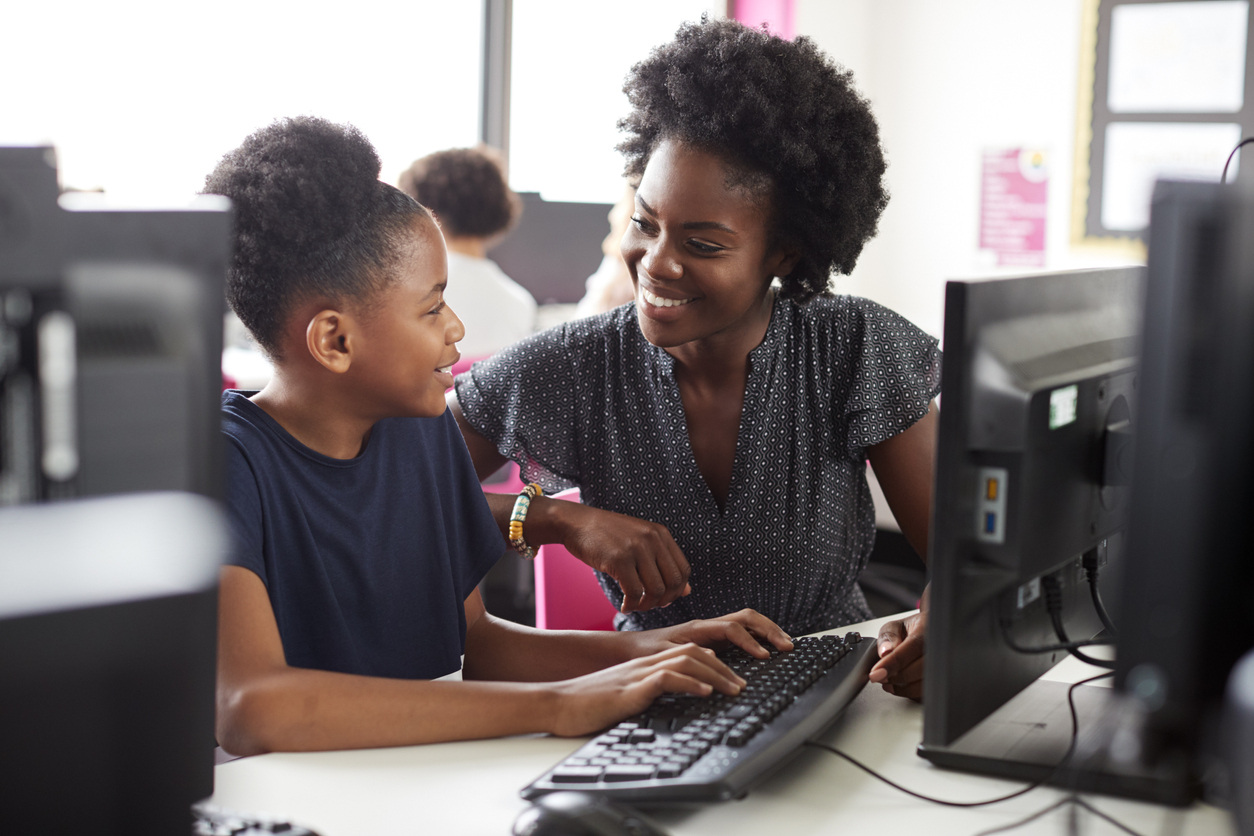Blog
Welcome Back, Students: Relationship-Focused Strategies for Connecting with Young People
As fall approaches, a return to the classroom can mean fresh opportunities for connecting with all students in meaningful ways. Educators and other youth-serving practitioners are busy making plans to return to the classroom, providing the perfect opportunity to consider tools and strategies that are proven to boost student engagement.
What are we learning about student motivation and engagement? And how do we build the developmental relationships that young people need to stay engaged?
The Ties that Transform
Search Institute's ongoing research on student-teacher relationships provides a hopeful blueprint for building the kinds of developmental relationships that can spur learning, boost motivation, and transform student engagement.
Developmental Relationships
Developmental relationships are the close connections with adults, peers, and near-peers that help young people develop their abilities to shape their own lives, build resilience, and thrive in school and life.
Search Institute’s developmental relationship framework includes five elements and 20 specific actions that young people experience in relationships that affect their learning, growth, and development. The five elements are:
- Express care—Actions that exhibit trust, mattering, and being known and valued by the other person.
- Challenge growth—Actions that push the other person to live up to their potential, take responsibility for their actions, and learn from setbacks and failures.
- Provide support—Actions that help the other person complete tasks and achieve goals, including supporting them through difficult systems and situations.
- Share power—Actions that show respect, give choices, and provide a voice to the other person, developing autonomy and a sense of self-direction.
- Expand possibilities—Actions that connect the young person to people, places, and ideas that broaden their options and opportunities for the future.
Developmental relationships don’t happen accidentally, or overnight. Building them requires intentional focus and awareness. Our research shows that too many students (less than half of a survey of nearly 15,000 young people) do not report strong student-teacher relationships, even though these relationships play a critical role in motivation and learning.
When young people experience strong student-teacher relationships, they earn better grades, feel more connected to their education, feel culturally respected and included, and report their instruction as high quality.
The DREAM Study
The DREAM Study was a longitudinal study conducted in partnership with the public schools in Bloomington, Minnesota. It helped further our understanding of the foundational importance of developmental relationships in addressing student motivation — especially for Black, Latinx, and Indigenous students.
What else did we learn from the DREAM Study?
- Developmental relationships are particularly important for students from low-income backgrounds.
- A wide gap exists between students’ and teachers’ perceptions of their relationships.
- As the school year progresses, and relationships are built, students report higher levels of motivation; but most students say their relationships with teachers stay the same or get worse. Again, this is especially true for low-income students.
- Students have clear, reasonable ideas for how to improve their relationships with teachers.
Practical Ideas for Relationship-Building in the Classroom
Once we grasp the importance of student-teacher relationships, how do we jumpstart relationship-building once the bell rings?
The beginning of the school year is a great time to frontload and prioritize activities that establish trust and provide a foundation for growth. It’s a chance to get to know each other, establish group norms and create an inclusive environment where all students feel seen and heard.
Here are three suggestions for simple classroom activities that can help students and teachers experience stronger relationships.
- Get To Know You and Establish Group Norms is a 30-minute activity that explores what students have in common, and what sets them apart from one another. It’s a great foundation for other relationship-building activities, and helps students vocalize what they need from the group to feel comfortable sharing their thoughts and feelings.
- What Makes You Happy? is a 45-minute activity where students share their talents, interests, or activities — sparks — with the group. They’ll share what they are passionate about, what makes them lose track of time, and what kinds of ideas, people, and things turn them on.
- Identity Wheel is a 30-minute activity where students and adults share aspects of their background, heritage, talents, and skills. Sharing in this way builds and strengthens relationships as people learn to relate to their own identity and learn about other’s identities and experiences.
A New Start with Intentionality
The return to the classroom provides a chance for practitioners and leaders to become more intentional about building the types of strong connections that help students feel engaged and valued in classrooms. These strong connections lay an important foundation for interaction and relationship-building throughout the year, and can have a lasting impact on young people.
Using these tools and strategies, teachers can intentionally build the developmental relationships all students need to become their best selves.



